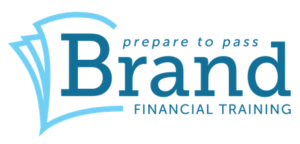Professional Paraplanner’s TDQ (Training, Development and Qualifications) series, is run in conjunction with key support providers, such as Brand Financial Training, and aims to test your knowledge of the financial services market, as part of your overall training goals and exam techniques.
The following questions, which can also be found in our April 2022 issue, relate to examinable Tax year 20/21, examinable by the CII until 31 August 2022.
Questions
1. There is no requirement for a cancellation notice to be sent out in relation to Peter’s new policy. This is because he has taken out:
A. a critical illness policy with a 5-year term
B. an income protection policy with a 2-year term
C. a travel policy with a 2-week term
D. a life policy with a 1-year term
2. Your client has requested information regarding the concept of performance evaluation. You explain to him that performance evaluation is primarily about: Tick all that apply.
A. reviewing the asset allocation of his portfolio.
B. calculating the return on an investment over time.
C. measuring the value added to his portfolio by the investment manager.
D. assessing how the investment value has added value to his portfolio.
3. John is self-employed and his accounts run to 31 August each year, what will his taxable trading income for 2021/22 be based on?
A. Profits from 6 April 2020 to 5 April 2021
B. Profits for his accounts ending 31 August 2020
C. Profits for his accounts ending 31 August 2021
D. Profits from 31 August 2020 to the 5 April 2021
4. Craig is one of three partners in a partnership and has £80,000 in the capital account. On his death, this is treated as:
A. An asset of the partnership
B. An asset of his estate and repayable immediately
C. An asset of his estate and the partnership equally
D. An asset of the partnership up to the amount stated in the partnership agreement with the remainder being due to his estate
5. Simon has a self-invested personal pension (SIPP) as he likes to make his own investment decisions. Simon should be aware that this allows him to use the plan as:
Tick all that apply.
A. a route to invest in commercial property.
B. a way of making loans to his limited company.
C. a platform to operate income withdrawals through flexi-access drawdown.
D. funding for his buy-to-let properties.
6. For investors in collectives there is usually a wealth of information provided by the manager, including monthly fact sheets, interim and final reports. What is a potential limitation of using such data?
A. It is only available to very large institutional investors.
B. They are written in technical jargon so very difficult to interpret.
C. Data is historic and may not be a good indication of future performance.
D. It is only available from research providers at a cost.
7. Which of the following describes a bottom-up active management style which aims to capitalise on the continuance of existing trends in the market?
A. Momentum
B. Growth At A Reasonable Price
C. Contrarianism
D. Value
8. Under which power of attorney must an independent third party confirm that the donor understands the purpose and scope of the attorney and that they are NOT acting under any undue pressure?
A. Enduring Power of Attorney
B. Lasting Power of Attorney – both types
C. Lasting Power of Attorney – financial decisions only
D. Ordinary Power of Attorney
9. Which type of equity release product normally involves a lease set with reference to a condition being fulfilled subsequent to its creation?
A. Home Income Plan
B. Shared Appreciation Mortgage
C. Home Reversion Plan
D. Drawdown scheme
10. Jack, a married man aged 39 with two young children, is entering into a mortgage contract with his local building society acting as the lender. He has been told that he is permitted to do so on an execution-only basis. This is most likely because he is:
A. a high net worth borrower.
B. a vulnerable customer.
C. consolidating debt.
D. purchasing equity release.






























